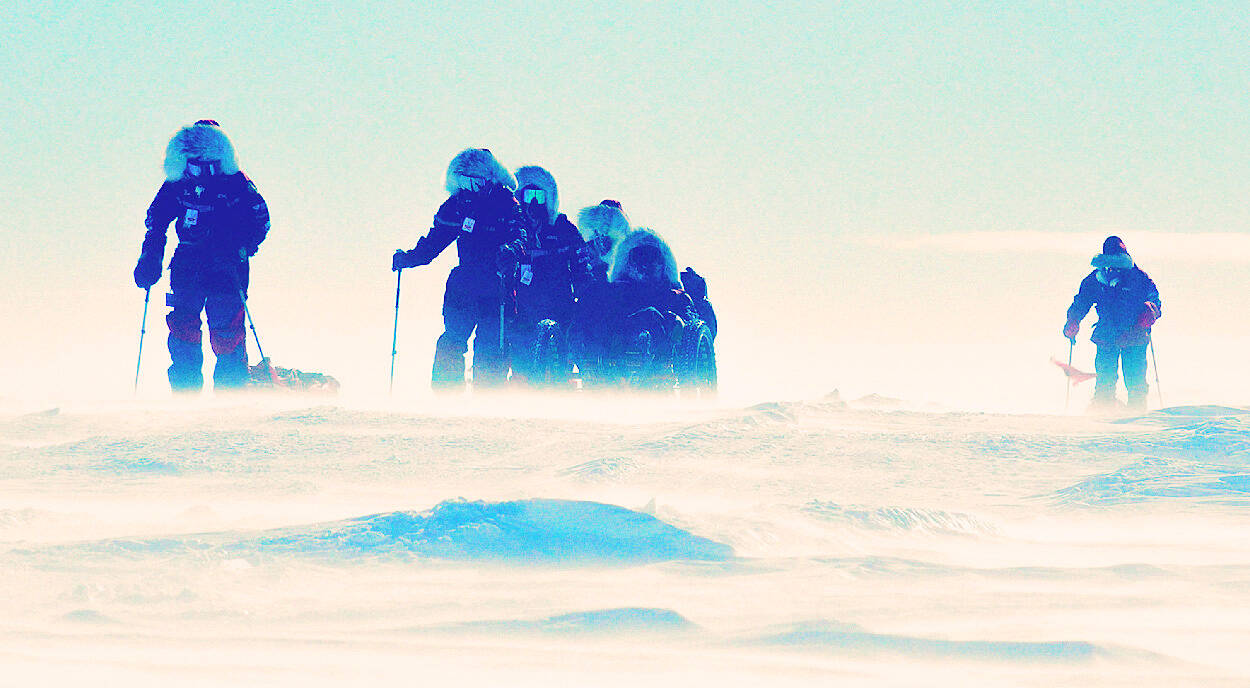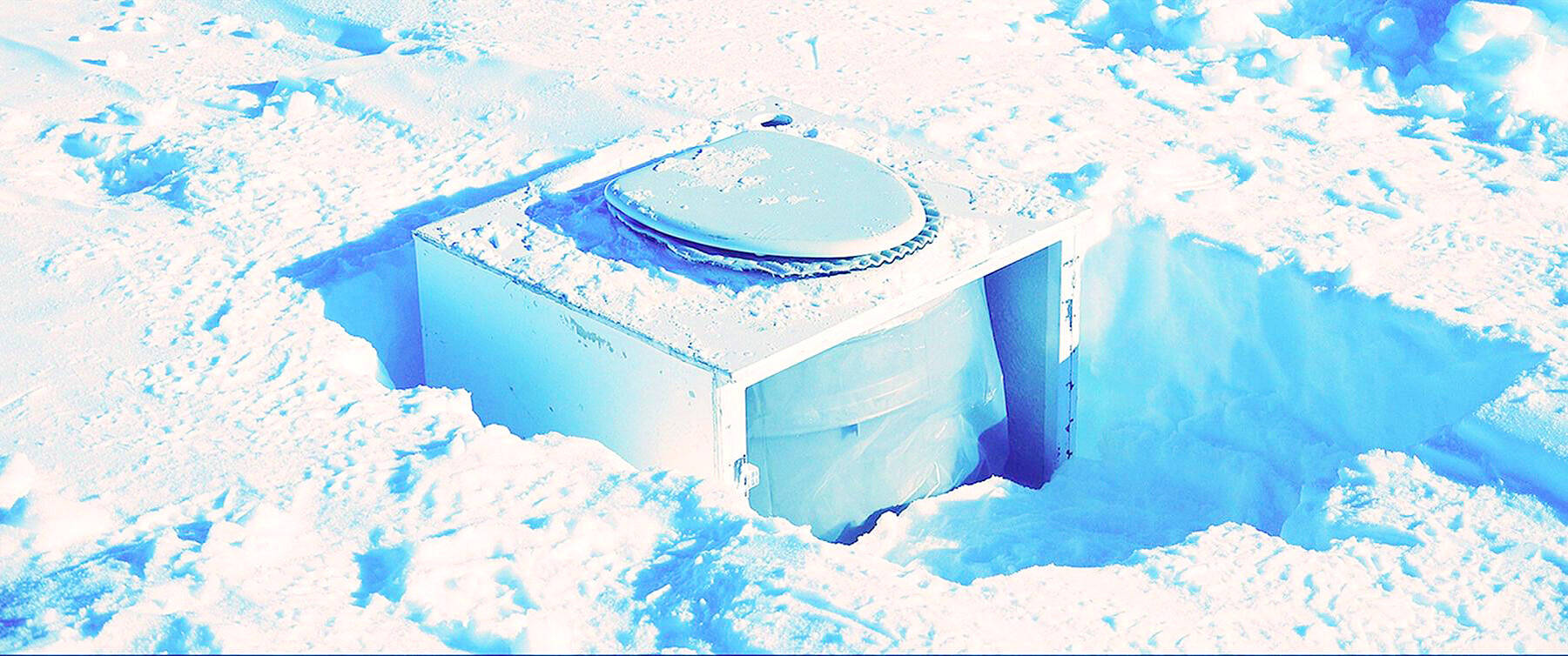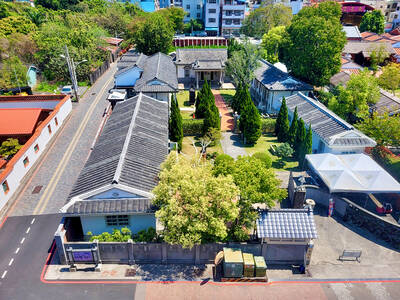Although Nature of Mother (無邊) features the first Taiwanese expedition to the south pole, it is hardly the main story. We do see some of the crew’s hardships and enjoy stunning shots of them trudging through the unforgiving, snow-blasted environment, but it’s really about director Yang Li-chou’s (楊力州) exploration of his inner demons and his relationship with his family.
The audience never really gets to know the team members, their backgrounds and their motivations behind the perilous 15-day endeavor, where they have to literally sign their lives away. The entire purpose of the trip is not clearly stated, and the few scenes featuring individual crew members are disjointed, as their emotions and situation mostly serve to segue into Yang’s reflections.
The serious mishaps, such as finding that they don’t have enough rations to finish the journey, are barely explained, nor how they eventually overcame the odds to make national history in December 2018. Even Yang losing his medication and equipment doesn’t seem like a big deal; we never learn why it happened or how he copes.

Photo courtesy of Backstage Studio
This inward-looking, contemplative setting is evident from the beginning, however, as the film opens with Yang giving a spirited presentation about his career that moves the audience to tears. Something is not right, however, as his voice fades in and out, and the footage is full of glitches that briefly cut to shots of space and the moon.
“But I don’t love myself,” he says in a voiceover.
Yang is best known for his hot-blooded, inspirational movies of underdog success — from the indigenous teens in 2006’s My Football Summer (奇蹟的夏天) to 2011’s Young at Heart: Grandma Cheerleaders (青春啦啦隊). His more recent, 18-part Weirdo Series (怪咖系列) minidocumentaries are also uplifting celebrations of those who strive to blaze their own paths.

Photo courtesy of Backstage Studio
Given the subject, one would expect Nature of Mother to follow the same vein, but it seems like Yang can’t do it anymore. He’s clearly haunted by something to the point of near-debilitation, and going on this journey of potentially no return seems to be his way of trying to deal with it. He juxtaposes the Taiwanese expedition with eerily jumbled footage from the doomed British Terra Nova Antarctic expedition of 1912, adding to the somber and ominous mood. The Antarctic landscape is otherworldly enough, and Yang’s treatment further pushes the film into the surreal, to the point where we forget that they’re in a life-and-death situation almost every day.
His words of despair float in and out of the story, along with faded scenes of his parents, wife and children. At one point he mentions that he wouldn’t mind if they never made it home; he later asks, “Why am I willing to die for my mother instead of living for my children?”
It’s quite heavy stuff, but it’s also poignant to see a well-known director bare his heart like this. It’s unclear if he finds what he needs in the South Pole, and perhaps this is just the beginning of him trying to face himself.
While other directors seem to be making their productions longer, too often for no apparent reason, Yang is going in the opposite direction. His previous feature, Love Without Clutching, Leave Without Guilt (愛別離苦), crammed the emotionally-charged stories of six women into 77 minutes; Nature of Mother clocks in at just exactly one hour.
It feels like just enough time for what Yang personally wants to say, but perhaps there could have been more room for the expedition and its intrepid crew members who went on the adventure of their lives.

In the March 9 edition of the Taipei Times a piece by Ninon Godefroy ran with the headine “The quiet, gentle rhythm of Taiwan.” It started with the line “Taiwan is a small, humble place. There is no Eiffel Tower, no pyramids — no singular attraction that draws the world’s attention.” I laughed out loud at that. This was out of no disrespect for the author or the piece, which made some interesting analogies and good points about how both Din Tai Fung’s and Taiwan Semiconductor Manufacturing Co’s (TSMC, 台積電) meticulous attention to detail and quality are not quite up to

Chinese Nationalist Party (KMT) Chairman Eric Chu (朱立倫) hatched a bold plan to charge forward and seize the initiative when he held a protest in front of the Taipei City Prosecutors’ Office. Though risky, because illegal, its success would help tackle at least six problems facing both himself and the KMT. What he did not see coming was Taipei Mayor Chiang Wan-an (將萬安) tripping him up out of the gate. In spite of Chu being the most consequential and successful KMT chairman since the early 2010s — arguably saving the party from financial ruin and restoring its electoral viability —

It is one of the more remarkable facts of Taiwan history that it was never occupied or claimed by any of the numerous kingdoms of southern China — Han or otherwise — that lay just across the water from it. None of their brilliant ministers ever discovered that Taiwan was a “core interest” of the state whose annexation was “inevitable.” As Paul Kua notes in an excellent monograph laying out how the Portuguese gave Taiwan the name “Formosa,” the first Europeans to express an interest in occupying Taiwan were the Spanish. Tonio Andrade in his seminal work, How Taiwan Became Chinese,

Toward the outside edge of Taichung City, in Wufeng District (霧峰去), sits a sprawling collection of single-story buildings with tiled roofs belonging to the Wufeng Lin (霧峰林家) family, who rose to prominence through success in military, commercial, and artistic endeavors in the 19th century. Most of these buildings have brick walls and tiled roofs in the traditional reddish-brown color, but in the middle is one incongruous property with bright white walls and a black tiled roof: Yipu Garden (頤圃). Purists may scoff at the Japanese-style exterior and its radical departure from the Fujianese architectural style of the surrounding buildings. However, the property